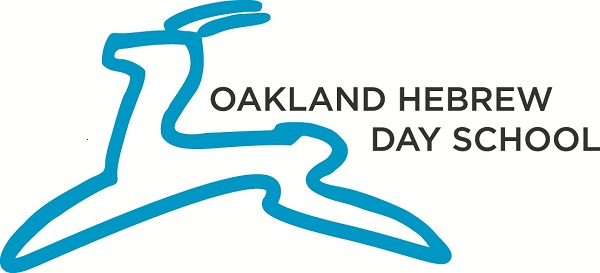Middle School Judaic Studies
-
Torah Study
Middle school Torah study includes the study of the five books of the Torah, Prophets, Writings, Mishnah and an introduction to Gemara, as well as associated commentaries. An emphasis is placed on close-reading of text with attention to biblical language, thematic patterns and inconsistencies that lead to the process of interpretive analysis. Students learn to pay close attention to the text, make nuanced observations, ask questions and explore a wide range of commentators as they search for answers. Through this in-depth exploration of Jewish text students have many opportunities to grapple with challenges, explore ethical dilemmas and ultimately, to find a sense of personal connection to Torah learning. Through in-depth text study, commentaries, partner-based (Chevruta) learning and discussion, students:
Compare and contrast the work of different commentators
Write at least one Dvar Torah (Torah portion commentary) to be shared with the community
Analyze the moral and legal issues in the Tanakh (written Torah)
Examine maps and how they contribute to the understanding of the text
Explore the development of Halakha (Jewish law) from its source in the Chumash through modern times
Investigate the relationship between the written Torah (Tanakh) and the oral Torah (Toshba)
-
Hebrew
Middle school Hebrew students, in collaboration with their advisor, are able to choose the right level of Hebrew for their needs. In the multi-aged Hebrew classrooms, middle school students strengthen their vocabulary, hone their grammar skills, and build their confidence with both spoken and written Hebrew. Through games, drama, music, discussion, literature study, grammar work and writing, students:
Express ideas coherently in both spoken and written Hebrew
Engage in class discussions in Hebrew
Prepare and successfully deliver Hebrew oral presentations
Read complex Hebrew texts with fluency and expression
Show understanding of Hebrew texts through a variety of modalities including writing, drawing and speaking
Write Hebrew dialogues, short stories, summaries and structured paragraphs using accurate Hebrew grammar and a rich Hebrew vocabulary
Explore Israeli literature
-
Jewish History and Culture
Middle school Jewish History and Culture allows students to deeply enjoy the chance to explore a huge array of topics related to the development and contributions of the Jewish people. From the story of Masada to Ethiopian Jewish culture, from oral histories of the Shoah to understanding present conflicts in Israel, students relish the chance to learn about the struggles and triumphs of our people as they build a sense of themselves within that history. Through research projects, literature study, visual arts, primary sources and discussion, students:
Articulate their opinion using textual evidence
Identify the hidden bias of a particular text or statement
Distinguish between fact, opinion and reasoned judgment in a text
Examine events within a timeline
Conduct interviews
Engage in research about World War II or the development of Zionist ideas
Compare and contrast information found within different sources and from different perspectives
Share knowledge through oral reports, art and the use of media, in addition to written assignments
-
Learning Methods and Skills
WBBM courses provide content aligned to student interest, while building strong skills for independent learning. Through deep text study, ongoing collaboration and a problem-solving approach, students develop their abilities at a variety of levels. Over the course of their three years in the WBBM students build the following skills:
Text and Language Skills
Develop questions and take steps to access commentaries that address those questions
Analyze words, grammar and patterns in biblical and rabbinic text to develop meaningful interpretations
Use logic and evidence to substantiate interpretations and analysis
Articulate ideas, interpretations and analysis through writing and presentation
Develop genuine enjoyment of the Hebrew language
For advanced Hebrew speakers: Work within an immersion Hebrew environment, access a wide breadth of commentators, participate in Hebrew-based partner work
For Hebrew speakers in need of extra support: Work with English sources within an English speaking Judaic studies environment, navigate texts with greater ease, access commentaries in translation
Collaboration Skills
Build strong working relationships with other students
Share responsibility for learning in Chevruta
Challenge peers to expand their thinking
Engage in active listening strategies
Reflect on one’s role within partner and group work
Independent Learning Skills
Reflect on challenges and set goals for growth
Advocate for one’s needs and interests as a learner
Express a positive attitude about learning, resulting in self-direction
Learn how to manage time, materials and complex tasks
